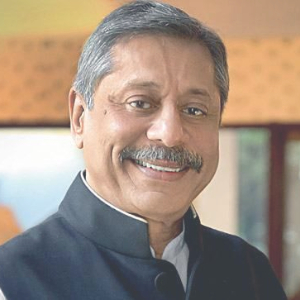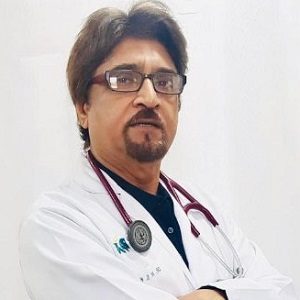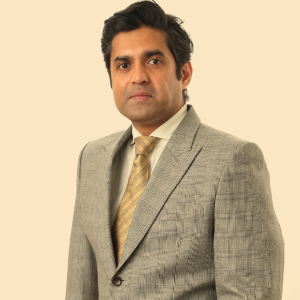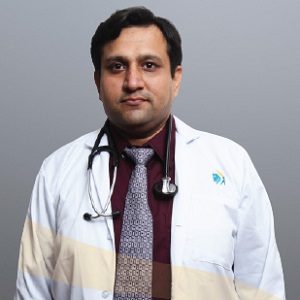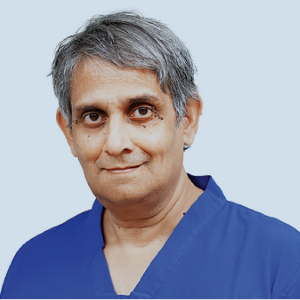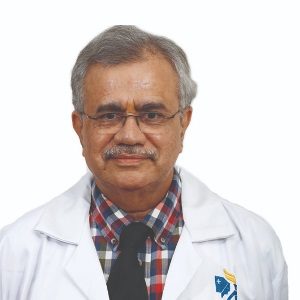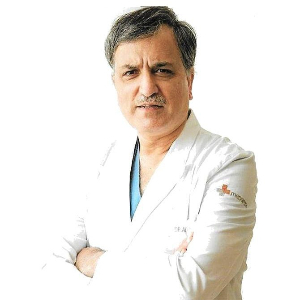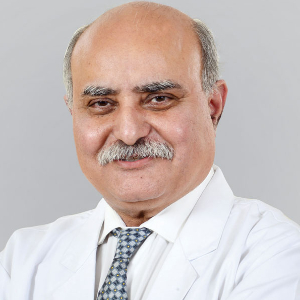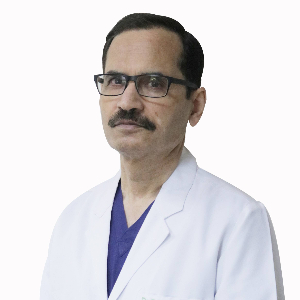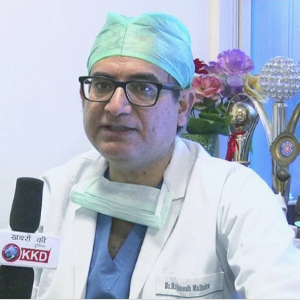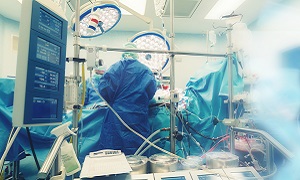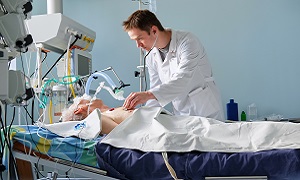Best Lung Transplant Surgeons in India
- Cardiac Surgeon, Gurugram, India
- Over 40 years’ experience
- Medanta-The Medicity, Gurgaon
Profile Highlights:
- Dr. Naresh Trehan is one of the most highly skilled and globally recognized cardiothoracic and vascular surgeons.
- His experience encompasses 40+ years and is considered one of the most successful and accomplished cardiac surgeons in the country.
- Dr. Naresh Trehan specializes in cardiovascular surgery, cardiothoracic surgery, Heart Transplant, and Minimally Invasive Cardiac Surgery and has performed more than 48,000 successful open-heart surgeries to date.
- He started his career as a Cardiac Surgeon at New York University Medical Centre where he performed over 3000 coronary artery surgeries and returned to India in 1988 and founded the Escorts Heart Institute and Research Center in New Delhi.
- Dr. Trehan is the Founder Chairman of Medanta- The Medicity in Gurugram, a premier multi-specialty hospital with state-of-the-art infrastructure and equipped with the latest and advanced technologies.
- Top Pulmonologist and Respiratory Medicine specialist | Apollo Hospital, New Delhi, India
- 48+ Years Experience
- Indraprastha Apollo Hospital, New Delhi
Profile Highlights:
- Dr. M.S. Kanwar is a distinguished pulmonologist with an impressive 46-year career, renowned both in India and internationally for his expertise in COVID-19, sleep medicine, and pulmonary care.
- Dr. Kanwar’s pioneering spirit extends to sleep medicine, where he made history in 1995 by establishing the largest and most advanced sleep lab in India at Indraprastha Apollo Hospital in New Delhi. His work in this area has set a high standard for sleep disorder management in the country.
- His other areas of expertise include asthma, COPD, lung infections, COVID-19, lung fibrosis, ILD, tuberculosis, lung cancer, sarcoidosis, lung transplants, ICU-related diseases, sepsis, and mechanical ventilation. He is skilled in advanced procedures such as bronchoscopy, EBUS (Endobronchial Ultrasound), and medical thoracoscopy.
- Heart & Lung transplant Surgeon, Hyderabad, India
- Over 20 years’ experience
- KIMS Hospital Hyderabad
Profile Highlights:
- Dr. Sandeep Attawar is a highly recognized Heart and Lung transplant surgeon in India who has over 2 decades of experience as a cardiac surgeon and has performed more than 10,000 cardiac surgeries on adult and pediatric patients.
- Dr. Attawar specializes in all types of surgeries for adults as well as pediatric heart patients and finds interest in heart and lung transplant surgery, congenital heart surgery, Aortic aneurysm repair, and implantation of heart failure devices.
- Top Pulmonologist, Respiratory Medicine Specialist | Apollo Hospital, New Delhi, India
- 13+ Years Experience
- Indraprastha Apollo Hospital, New Delhi
Profile Highlights:
- Dr. Nikhil Modi is a highly skilled and dedicated specialist in Respiratory Medicine, with extensive experience in managing a wide range of respiratory and critical care conditions.
- Currently associated with the Department of Respiratory, Critical Care, and Sleep Medicine at Indraprastha Apollo Hospital, Dr. Modi brings a wealth of knowledge and expertise to his role.
- At Indraprastha Apollo Hospital, Dr. Modi has been instrumental in treating a broad spectrum of respiratory ailments. His expertise includes fiberoptic bronchoscopy, a key diagnostic and therapeutic procedure for various lung conditions.
- He is also skilled in managing critically ill patients, providing advanced care in intensive care units, and leading the sleep laboratory, where he deals with sleep disorders and performs polysomnography.
- Heart Lung Transplant Surgeon, Chennai, India
- Over 40 years’ experience
- MGM Healthcare Chennai
Profile Highlights:
- Dr. K R Balakrishnan is a highly coveted cardiac surgeon in India and is probably one of the best heart transplant surgeons in the country.
- He has performed the largest number of heart transplants in the country including 180+ heart transplants, 23 lung transplants, and 9 heart & lung transplant procedures. He performed the first permanent artificial heart transplant in India with HeartMate II LVAD.
- Dr. K R Balakrishnan has over 40 years of experience in the field and has the expertise to perform cardiac surgeries on patients of all ages. He has performed over 16000 cardiac surgeries for various types of heart diseases and disorders till date.
- Pulmonologist, Chennai, India
- Over 36 years’ experience
- Apollo Hospitals Greams Road
Profile Highlights:
- Dr. Narasimhan R is a highly experienced and distinguished Pulmonologist, known for his pioneering contributions to the field. With over 35 years of experience, he has established himself as a leading expert in advanced respiratory procedures and treatments.
- Currently, Dr. Narasimhan heads the Department of Respiratory Medicine at Apollo Hospitals, Chennai.
- His expertise spans a range of innovative techniques, including bronchial thermoplasty for severe asthma, transbronchoscopic cryo-biopsy of the lung, and cryoablation for endobronchial lung tumors. He is also renowned for his work with endobronchial ultrasound (EBUS) to guide biopsies from difficult-to-reach nodes.
- Cardio Thoracic & Vascular Surgeon, Gurugram, India
- Over 35 years’ experience
- Medanta-The Medicity, Gurgaon
Profile Highlights:
- Dr. Anil Bhan is an excellent Cardiovascular and thoracic surgeon who has performed more than 15,000 cardiac and vascular surgeries that include heart transplant surgery, aortic aneurysm surgery, pediatric cardiac surgery, valve repairs, and peripheral vascular surgery among several others.
- He is one of the best pediatric cardiac surgeons in Delhi/ NCR and is credited with performing heart bypass surgery on the youngest patient in India in 2007 (18 months).
- He performed the first extracorporeal membrane oxygenation (ECMO) and was the first to use a harmonic scalpel for harvesting radial mammary artery conduits in India in 2000 and 1995 respectively.
- Cardio Thoracic & Vascular Surgeon, Noida, India
- Over 38 years’ experience
- Fortis Hospital Noida
Profile Highlights:
- Dr. Ajay Kaul is a leading name in the field of Cardiothoracic and Vascular Surgery in India.
- He has over 3 decades of experience in performing cardiac surgeries and has done more than 25,000 cardiac operations till date.
- He specializes in Coronary Bypass surgery and is one of the best with the highest number of total arterial coronary bypass surgery (4000+) by using two internal mammary arteries from the chest and without any cuts on arms and legs.
- Dr. Ajay Kaul’s interest lies in complex congenital cardiac diseases in children, pediatric cardiac surgery, aneurysm surgery, valve repair surgery, and cardiac failure surgery.
- He is also an expert in minimally invasive cardiac surgeries (MICS) and has performed more than 5000 MICS which is the highest by any cardiac surgeon in India.
- Top Cardiac Surgeon | Fortis Escorts, New Delhi, India
- 35+ Years Experience
- Fortis Escorts Heart Institute New Delhi
Profile Highlights:
- Dr. Z. S. Meharwal is a highly esteemed and accomplished Cardiac Surgeon, serving as the Chairman and Head of Adult Cardiac Surgery at Fortis Okhla, where he leads the Cardiac Sciences and Adult Cardiothoracic and Vascular Surgery (CTVS) departments.
- With over 30 years of unparalleled experience, Dr. Meharwal has performed more than 30,000 cardiac surgeries, including some of the most complex heart operations and Left Ventricular Assist Device (LVAD) implantations.
- Dr. Meharwal holds prestigious degrees in medicine, including MBBS, MS, M.Ch, and MNAMS.
- Top Cardio Thoracic & Vascular Surgeon | Max Hospital, Saket, New Delhi, India
- 31+ Years Experience
- Max Super Specialty Hospital, Saket, New Delhi
Profile Highlights:
- Dr. Rajneesh Malhotra is a distinguished cardiovascular and thoracic surgeon in India with over 31 years of experience.
- He is a prominent leader in the field of Cardiac Sciences and Cardiac Surgery (CTVS).
- Currently serving as the Vice Chairman and Head of CTVS at Max Healthcare, Dr. Malhotra has a robust background in both traditional and advanced cardiac surgical techniques.
Best Lung Transplant Hospitals in India
- City: New Delhi, India
Hospital Highlights:
- Over the last 33 years, the Fortis Escorts Heart Institute has set new standards in cardiac treatment with groundbreaking research. It is now known around the world as a centre of expertise for Cardiac Bypass Surgery, Interventional Cardiology, Non-invasive Cardiology, Paediatric Cardiology, and Paediatric Cardiac Surgery.
- The hospital has cutting-edge laboratories that perform a wide range of diagnostic tests in Nuclear Medicine, Radiology, Biochemistry, Haematology, Transfusion Medicine, and Microbiology.
- Fortis Escorts Heart Institute boasts a diverse group of bright and experienced doctors who are backed up by a team of highly qualified, experienced, and devoted support professionals as well as cutting-edge equipment such as the recently installed Dual CT Scan.
- Approximately 200 cardiac doctors and 1600 personnel currently collaborate to manage over 14,500 admissions and 7,200 emergency situations each year. The hospital now has a 310-bed infrastructure, as well as five cath labs and a slew of other world-class amenities.
- City: Faridabad
Hospital Highlights:
In the sprawling city of Faridabad, where healthcare needs are diverse and ever-evolving, one institution has consistently stood out as a beacon of excellence in the field of medicine—Marengo Asia Hospital. Established with a vision to provide world-class healthcare services to the community it serves, Marengo Asia Hospital has emerged as a trusted name synonymous with quality, compassion, and innovation in healthcare.
- City: New Delhi, India
Hospital Highlights:
- Equipped with 650 beds, BLK-Max Super Speciality Hospital is the largest stand-alone private sector hospital in Delhi.
- With over 1500 healthcare providers and 150 globally renowned super specialists, the hospital is one of Asia’s largest BMT Centres. The hospital is known for having some of the best cancer doctors in the country.
- The hospital is NABH and NABL accredited and was inaugurated by the first Prime Minister of India. Pt. Jawahar Lal Nehru.
- City: Chennai, India
Hospital Highlights:
- Located in Chennai, India, MGM Healthcare is a top multispecialty hospital that provides all medical services under one roof.
- Since its founding in 2019, MGM Healthcare has quickly become a leading national referral centre, creating several innovative flagship initiatives.
- MGM Healthcare combines next-generation medical and digital technologies to provide better patient results.
- With 12 centres of excellence, more than 400 inpatient beds, 100 intensive care unit beds, and 24/7 emergency care, MGM Healthcare leaves no chance in redefining the patient experience in Chennai.
- MGM Healthcare boasts 250+ expert doctors across 30+ departments, including Cardiology, Pulmonology, Neurology, Obstetrics & Gynaecology, and more.
- They house 12 specialized Centres of Excellence, including Neurosciences, Orthopaedics, and Multi-Organ Transplantation.
- Their team of doctors, nurses, and paramedics works together to give every patient individualized treatment.
- City: Noida, India
Hospital Highlights:
- Fortis Hospital, Noida, stands as one of the oldest and most trusted healthcare institutions in the region, setting a benchmark for comprehensive medical care.
- As the second mega hub hospital in the Fortis Healthcare Group, Fortis Hospital, Noida, upholds a legacy of trust among more than 1.2 million patients. By integrating top-tier professionals with cutting-edge technology, the hospital delivers superior treatment across various medical disciplines.
- Specializing in advanced Neurosciences, Orthopedics, Kidney and Liver Transplant Programmes, Fortis Hospital, Noida has successfully performed over 1,500 transplants, solidifying its reputation as a leader in specialized medical interventions.
Lung Transplant
Lung transplant is an effective treatment for people with severe lung disease, where a diseased or failing lung is replaced with a healthy lung, usually from a deceased donor. This treatment option is reserved for people who have tried multiple other treatments but failed to see any significant improvements.
Depending on the patient’s condition, a lung transplant can involve replacing one of the lungs or both of them. Sometimes, the lungs are transplanted along with a donor’s heart. Even though a lung transplant can involve several complications, it generally improves one’s health and quality of life.
Purpose
Unhealthy or damaged lungs can make it difficult for one to get the required amount of oxygen. The lung’s function can be affected due to a variety of diseases and conditions; some of the most common ones including:
- Chronic obstructive pulmonary disease including emphysema
- High blood pressure in the lungs (pulmonary hypertension)
- Scarring of the lungs
- Cystic fibrosis
Even though lung damage is usually treatable with medication or special breathing devices, when these measures are no longer able to help or the lung function reaches a life-threatening condition, a lung transplant might be suggested by your doctor.
People who are suffering from coronary artery disease might need a procedure for restoring blood flow to a blocked or narrowed artery in the heart, along with a lung transplant. In some cases, people having serious heart and lung conditions might need a combined heart-lung transplant.
However, it is also noteworthy that a lung transplant is not the right treatment for everyone. Certain factors can sometimes mean that you are not a proper candidate for the transplant. It might not be the proper treatment if you
- Have an active infection
- Have serious diseases including kidney, liver, or heart diseases
- Have a recent personal medical history of cancer
- Are unwilling or unable to make the necessary lifestyle changes necessary to keep your donor lung healthy, which includes avoiding alcohol and smoking
- Do not have a network of supportive friends and family
Preparation
Preparations for a lung transplant usually begin a long time before the transplant. Sometimes you might need to prepare for a lung transplant weeks, months or even years depending upon the waiting time for your transplant.
If your doctor recommends a transplant, you will be referred to a transplant center for your evaluation. You are free to select a transplant center of your choice as well. When you are evaluating a lung transplant center, do keep in mind to:
- Check with your health insurance provider to know which transplant centers are covered by your insurance plan
- Look at the number of lung transplants the center performs each year as well as the survival rates of the recipients.
- Consider additional services that your transplant center provides, such as travel arrangements, support groups, help to find local housing for your recovery period, etc.
Once you have made up your mind to have your lung transplant, you will need an evaluation in order to see if you are eligible for the transplant. During an evaluation, your medical history will be reviewed by your doctors and transplant team and a physical examination will also be conducted. A physical examination along with several other tests will also be required in order to evaluate your mental and emotional health.
The benefits and risks of the transplant will also be discussed by your transplant team as well as what you should expect before, during and after your transplant. Your name will be registered as well as placed on the waiting list, once you are determined eligible for the transplant.
If the transplant team determines you as a candidate for a lung transplant, your name will be registered and placed on a waiting list. Since the number of people who need lung transplants exceed the number of donated lungs available, unfortunately, some people die while they wait for their transplant.
While you are on the waiting list, your medical team will be closely monitoring your condition as well as alter your treatment as needed. Your doctor might also recommend healthy lifestyle changes, which include eating a healthy diet, getting exercise on a regular basis and avoiding tobacco.
Your doctor might also recommend you take part in a pulmonary rehabilitation program while you are waiting for the donor’s lung, as this can help in improving your health as well as your ability to function in daily life before and after the transplant.
As soon as a donor organ is available, the donor-recipient matching system administered by the United Network for Organ Sharing will find an appropriate match based on specific criteria, which includes:
- Blood type
- Size of organ compared with the chest cavity
- How severe the recipient’s condition is
- Geographic distance between the donor organ and transplant recipient
- Likelihood that the transplant will be successful
- Overall health of the recipient
Even though it can take months or even years before a suitable donor is available, you should be prepared at all times. Make sure that your transplant team is able to reach you at all times.
Keep your hospital bag packed and remember to include a 24 hour supply of your medications. Also arrange transportation to the center in advance, as when the organ is available, they will be expecting your arrival in just a few hours.
After you arrive, you will need to undergo tests in order to make sure that the lung is a good match, and you are healthy enough for surgery. The donor’s lung needs to be healthy as well, or else it will be declined by the team. If it doesn’t seem like the transplant will be a success, it might be cancelled.
Procedure
You will receive general anesthesia before the procedure and therefore, you will be unaware throughout the process and won’t feel any pain. You will get a tube that will be guided through your mouth and into your windpipe so that you are able to breathe.
First, your surgeon will be making a cut in your chest for removing your diseased lung. The main airway to that lung as well as the blood vessels between that lung and your heart will next be connected to the lung of the donor. In some transplants, you might be connected to a heart-lung bypass machine, which will circulate your blood throughout the procedure.
After the transplant
A tube in a vein will deliver strong medications for controlling pain and to prevent rejection of your new lung. As your condition improves, you will not need a mechanical ventilator anymore and you will be moved out of the ICU as well. Recovery can involve a one-to-three week hospital stay and the amount of time you will spend in the ICU and in the hospital may vary.
Once you leave your hospital, you will require around three months of frequent monitoring by the lung transplant team for preventing, detecting and treating complications as well as for assessing your lung function. You need to stay close to the transplant center and over time, your follow-up tests can get less frequent.
Few important things you need to include your routine include:
- Education sessions so that you can learn your complicated new lifelong medication plan.
- Frequent visits to your doctor.
- Regular tests of lung function, chest X-rays, blood tests as well as procedures like bronchoscopy
Many transplant centers offer temporary housing nearby so that it becomes easier for their patients to make visits easily and frequently.
A lung transplant can help one to remove breathlessness and live an active and healthy life for years. 4 out of 5 people who have had lung transplant surgery, has reported to have no limitations on their physical activity.
However, complications after the transplant may eventually arise. The immune system’s rejection of the donor’s lung can be slowed, though it can’t be stopped entirely. The necessary powerful immune-suppressing drugs have some side effects which are unavoidable. These may include kidney damage, diabetes, etc. Survival after transplant is mostly influenced by age.
Risks
In a few cases, complications which are associated with a lung transplant can be serious and sometimes fatal. Rejection and infection are known to be the most common risks.
Risk of rejection: Your immune system is meant to defend your body against any foreign substances. Even if there is a match between you and your donor, your immune system will attempt to attack and reject your lung or lungs. The risk of rejection is highest soon after the lung transplant and over time it reduces.
You will need drugs to suppress the immune system to prevent rejection of your new organ. You might need to use these anti-rejection drugs for as long as you live.
Anti-rejection drugs can have some noticeable side effects, which will include weight gain, stomach problems and facial hair.
Sometimes anti-rejection medications can even increase your risk of developing new conditions or even worsen your existing conditions, such as diabetes, cancer, kidney damage, osteoporosis and high blood pressure.
Risk of infection: Since the anti-rejection drugs suppress your immune system, this can make your body more susceptible to infections, especially in your lungs.
Washing your hands regularly, and avoiding large crowds as well as people who might be ill are some of the steps one can take to avoid any kind of infection.

